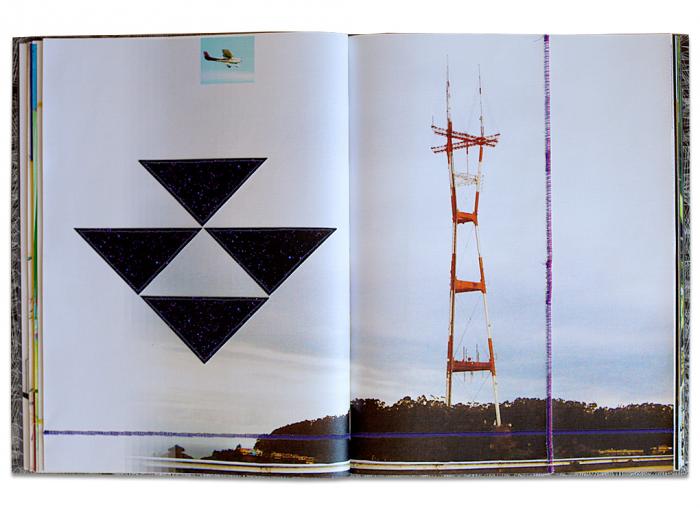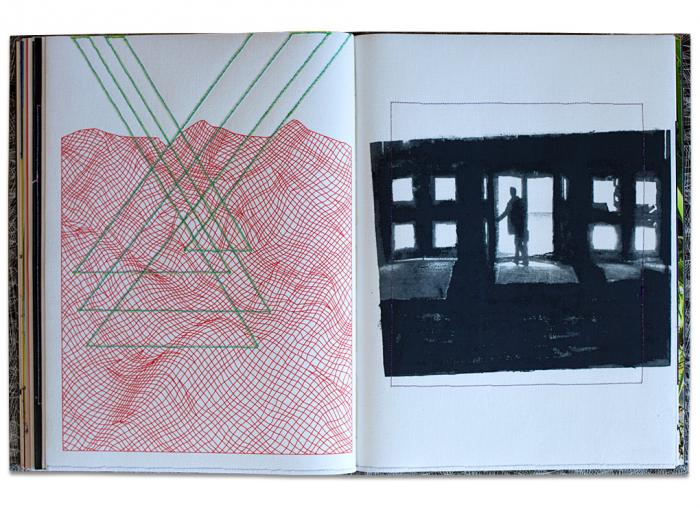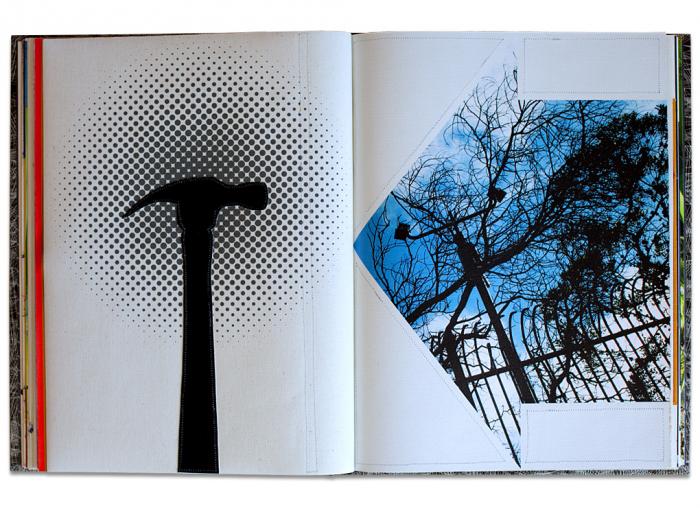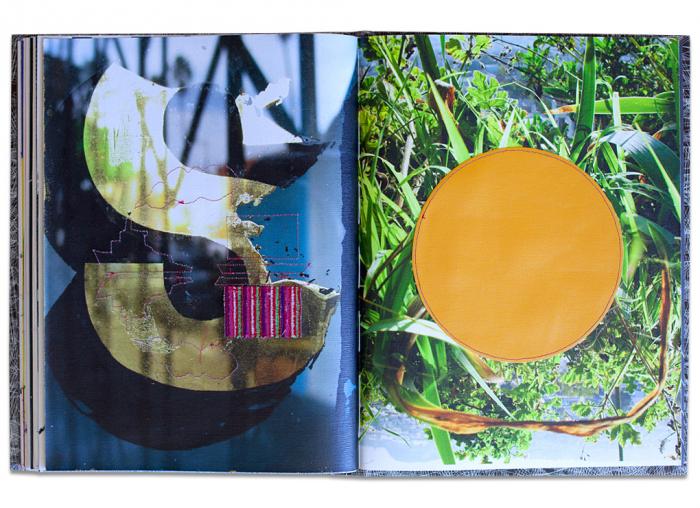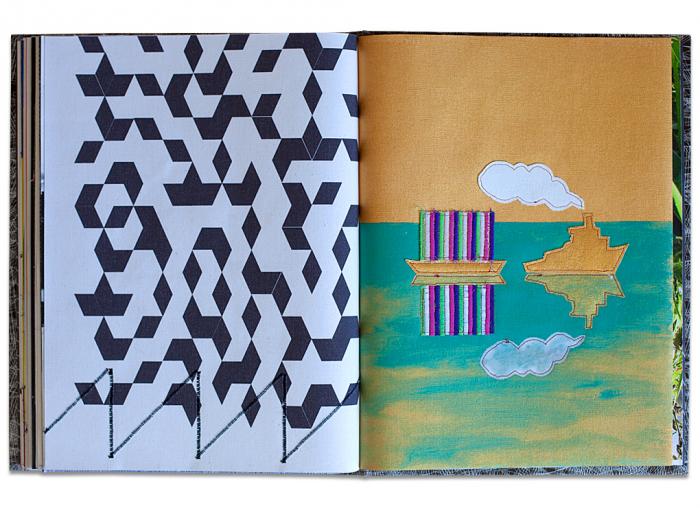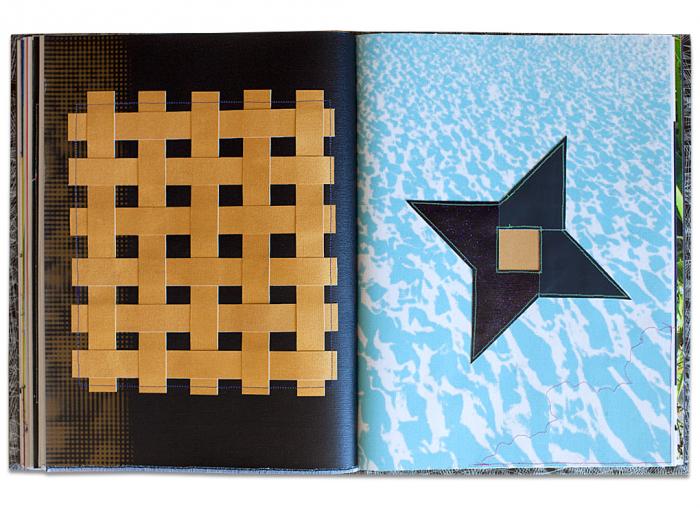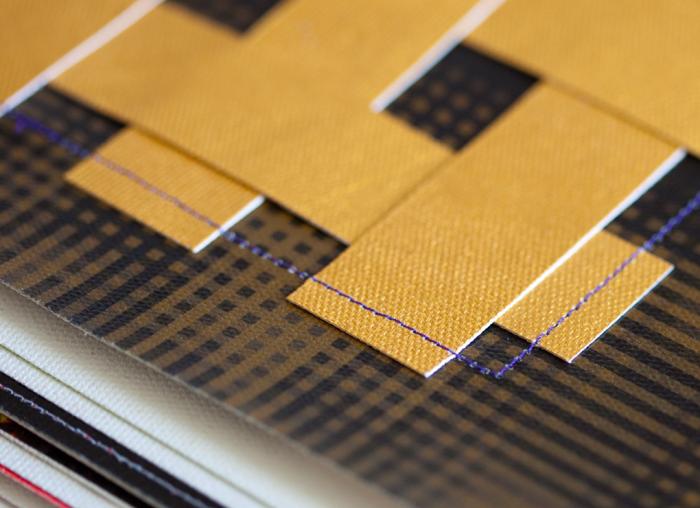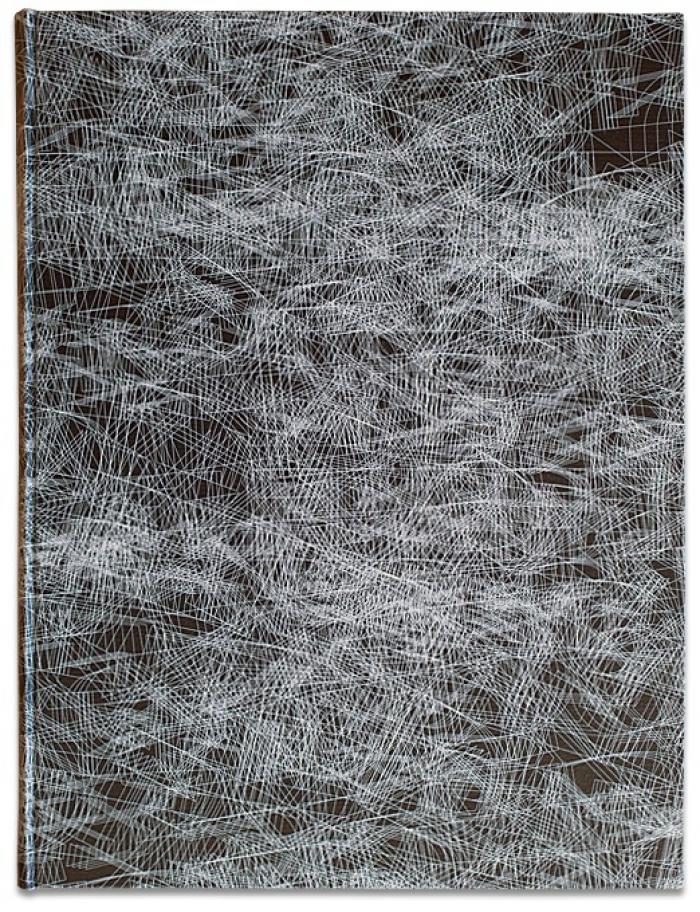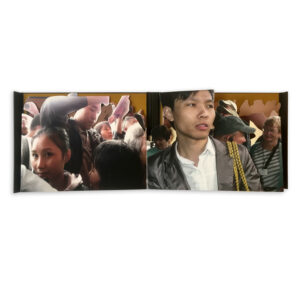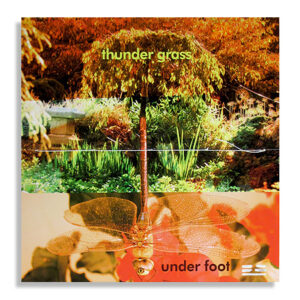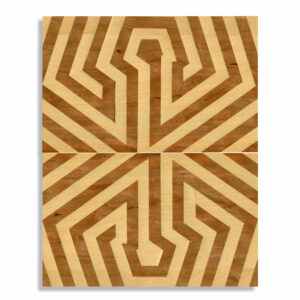Sweet Call and Response
Sweet Call and Response
Date
2012
Edition Size
25
Media
Digital print, Embroidery
Binding
Cloth case, Hand-sewn
Format
Artist Book
Dimensions
16.5 × 12.5 in
Pages
42
Publisher
Dana Dana Dana Limited Editions
Collection
Limited Edition Artists Books$ 1,800.00
1 in stock
View Collectors
Athenaeum Music & Arts Library, La Jolla
Bainbridge Island Museum of Art
Sterling & Francine Clark Art Institute
The New York Public Library (NYPL)
University of California, Santa Cruz (UCSC)
University of Central Florida (UCF)
University of Delaware Library
It is fundamentally human to be compelled to send a message and to attract a response. Sweet Call and Response is a visual poem about communication through the interplay of universal symbols and photographic images to convey the call for something or someone to call back or make a corresponding gesture of completion of the communication circuit.. It is the result of a collaboration between artists Steve MacDonald and Dana Smith that experiments with digital printing on canvas, photo collage, machine-sewn thread, and sewn collage.
“The book is a visual and tactile tour de force in the innovative tradition of California artists bookmaking. It integrates references to Pop Art and retro space-age Mod culture. The book uses the conceptual strategies developed by artists like John Baldessari and Ed Ruscha, and material practices similar to Jess and Bruce Conner to create an exceptional twenty-first-century livre d’artiste.” — Marshall Weber, Booklyn curator
The book is printed on canvas that is coated for digital printing with pigmented inks. The pages are then sewn using a Singer sewing machine to apply fine lines of drawing over the ink. On some pages, cut-out pieces of colored canvas are sewn onto the page like patches. As the reader moves through the book it is apparent that the pages are affected on both sides by the sewing. This intentional construction of the book propels the reader ever forward to turn the page to see how the design reveals itself on the other side of the page. Thus the foreshadowing and the after shadowing of the sewn elements construct the sequential narrative.


